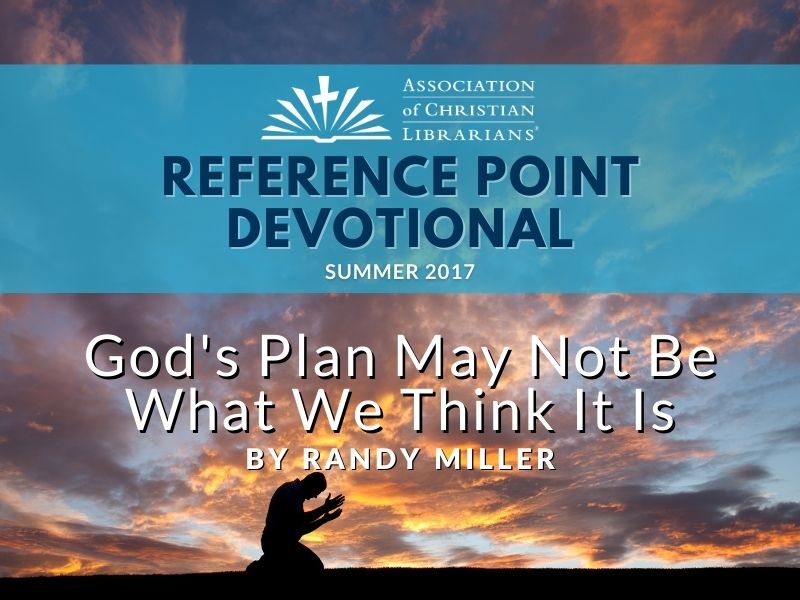“For I know the plans I have for you,” declares the Lord, “plans to prosper you and not to harm you, plans to give you hope and a future.” (Jeremiah 29:11 NIV)
A recent Christian movie set in the 1950s showed a young couple lying on the hood of their 1956 Chevy, looking up at the stars. One of them quoted Jeremiah 29:11 from the New International Version (which ironically wasn’t published until the 1980s) and talked about their upcoming marriage. Based on this verse, they thought everything they ever dreamed about was about to come true.
One of my college professors always used to say, “A text without a context is a pretext for a proof text.” Or, to paraphrase a line from Inigo Montoya in The Princess Bride, “You keep using that verse; I do not think it means what you think it means.”
Though many Christian birthday and graduation cards quote Jeremiah 29:11, the chapter was written to Jewish exiles during the time of the Babylonian captivity. God was, in essence, telling them, “Get settled and get used to your new land. This will be your home for the next seventy years. Plant gardens. Your children will grow up and get married here; your grandbabies are going to be born here, and most of you will never see the land of Israel again. Pray for your adopted city. As the city prospers, you will prosper.”
“I haven’t forgotten you. When this season in Israel’s history is over, I will bring your descendants back to the Promised Land. But realize this will be many years from now. If anyone tells you differently, do not listen. They are false prophets.” The Hebrew word for the “you” that God “has plans for” in this verse is plural, dealing with Israel. God does have a will and a plan for each individual. You just don’t read about it in this passage.
I’ve watched corn grow. Within one summer, it starts as a seedling, grows tall, is harvested, and later is chopped up for silage. Some years, hail might destroy much of a crop. Some years bring bumper crops, other years bring drought. God is not bound by time, so I imagine as He watches each person’s “three-score and ten” years of life, just like he oversaw the seventy years of Babylonian captivity experienced by the Israelites, it seems to Him to happen more quickly than a summer’s brief growing season does to us (James 4:14).
When their captivity ended, the foundations were laid for the temple to be rebuilt in Jerusalem (Ezra 3:11-13). The older men who had seen the previous glory of Solomon’s temple wept loudly because this temple was far less ornate than the edifice they fondly remembered. The younger men, however, were enthusiastic and shouted for joy mixed with hope for the future.
We don’t know what the future holds, but we know Who holds the future. Don’t allow cynicism and dread to discourage you. My alma mater where I previously served as librarian closed its doors for financial reasons in 2008. However, the kingdom impact being made by students trained there lives on. In the decades ahead, I imagine we will see more institutional changes and closures. We must always live by faith, not merely by sight (2 Corinthians 5:7).
Be content (1 Tim. 6:8). Be faithful (1 Cor. 4:2). Plan wisely (Luke 14:28). Claim God’s precious promises (2 Peter 1:4). And do all to the glory of God (1 Cor. 10:31)!

Randy L. Miller
Randy is a Graduate Research and Instruction Librarian at Liberty University. He has been a member of ACL since 1990.


